July 2023 Newsletter
In this Issue…
Notes from Joe
· Gene Therapy is Here, Now What?
Notes from the Community
· First Hemophilia Patient to Receive Gene Therapy Outside Clinical Trials
Alliance Update
· Gene Therapy Update Webinar
· Alliance Member Needs Assessment
· Order Your Printed Product Guide NOW!
Payer Update
· Hemophilia Alliance Welcomes Kollet Koulianos
· What the Data Shows on Copay Accumulator Adjustment Programs
Advocacy Update
· Washington, DC’s HOT July
Legal Update
· Lawsuits on Implementation of Medicare Drug Pricing Negotiation
Gene Therapy is Here, Now What?
by Joe Pugliese, President and CEO
Since its inception in 1999, the Hemophilia Alliance has seen significant growth in the research and development of novel therapies for the treatment of patients with hemophilia, von Willebrand disease, and other related bleeding disorders. The first infusion of an FDA approved gene therapy product, done at a federally funded hemophilia treatment center of excellence, outside of a clinical trial, is a milestone towards finding an eventual cure for these patients. We would like to congratulate our member center Hemophilia Outreach Center, Green Bay, WI, for their successful infusion (see article under Community News) and our manufacturing partners for their commitment to finding durable therapies for the patients our member centers support.
On the heels of this historic infusion and after a long review process, BioMarin received approval for Roctavian, their gene therapy product for Factor VIII deficient patients. The week before the FDA accepted Pfizer’s application for their factor IX gene therapy product.
Since the introduction of monoclonal purified products in the late 1980’s, our patients have been the beneficiaries of a seemingly endless stream of new and innovative products. These products have miraculously changed the lives of people with hemophilia. A survivor of the AIDs crisis in our community summarized the change very succinctly, “If I had known I was going to live this long I would have planned better.” This is a message that all individuals living with bleeding disorders should follow as they can look forward to potentially having heart disease, high cholesterol, and a plethora of other diseases you generally only experience by living into your 60s, 70s and beyond.
With the introduction of gene therapy, it has never been more apparent that the key to bringing innovative therapies to market and have them successfully brought to the community is through the federally supported United States Hemophilia Treatment Center Network (USHTCN). The centers are uniquely positioned to evaluate, counsel, administer, and assure the patient is correctly managed in the critical 6–12-month window post-infusion.
With the development of new and improved products, the advances in diagnosis, and a better understanding of the nuances of being a carrier or a mild to moderate patient, the demand for services is continuing to expand at the federally supported hemophilia treatment centers. The Alliance hears from the organizations representing patients in these various groups that they seek greater access to specialized care.
The most expensive patients are always the patients who are mismanaged and often are also the patients with the lowest quality of life and the highest mortality and morbidity. It is critically important that all HTCs in the USHTCN are included in health plan networks for both clinical and pharmacy services. It is the key to ensuring the best patient outcomes at the lowest possible price.
First Hemophilia Patient to Receive Gene Therapy Outside Clinical Trials
by Hemophilia Outreach Center – Green Bay, WI
In a recent press release, the Hemophilia Outreach Center of Green Bay, Wisconsin announced that a WI resident is the first ever hemophilia B patient to receive gene therapy since FDA approval of HEMGENIX. Mason Buxton, the individual treated with the gene therapy stated, “I feel honored to be the first person to participate in this therapy outside of the clinical trials. I am very excited that I am going to be helping to prove that this is a treatment option for individuals with hemophilia B.”

HEMGENIX (etranacogene dezaparvovec), manufactured by uniQure Inc. and distributed by CSL Behring LLC, was FDA approved in November of 2022 and is for the treatment of adults with Hemophilia B (Factor IX Deficiency) who currently use Factor IX preventative therapy, or have current or historical life-threatening hemorrhage, or have repeated, serious spontaneous bleeding episodes. The FDA press release can be found here. Although HEMGENIX is not a cure for Hemophilia B patients, the medical advancement may reduce, if not, eliminate weekly preventative factor replacement and bleeds.
The HOC press release included the following quotes from providers:
“HEMGENIX is an important addition to the current treatment paradigm and a long-awaited advancement for the hemophilia B community,” said Matthew Ryan, MD, Adult Hematologist and Medical Director at Hemophilia Outreach Center, Green Bay, WI. “This exciting treatment offers patients a chance to live a life without frequent bleeds or the burden of regular infusions. The availability of this new one-time treatment also sparks additional conversations in the community when it comes to treatment options and goals, which is extremely important when managing a life-long condition, as an individual’s needs can change for a variety of reasons.”
“I’m just excited that patients have this new opportunity that will lead to such a better quality of life versus their current prophylaxis treatment! To live a life free from recurrent prophylaxis, not having that anxiety over if they are going to have a bleed or if they have factor with them, not worrying about damage to their joints from breakthrough bleeds….it will be very lifechanging for them.”- Andrea Miller, APNP, Hemophilia Outreach Center.
- Gene Therapy Update Webinar
by Marketing & Operations Team
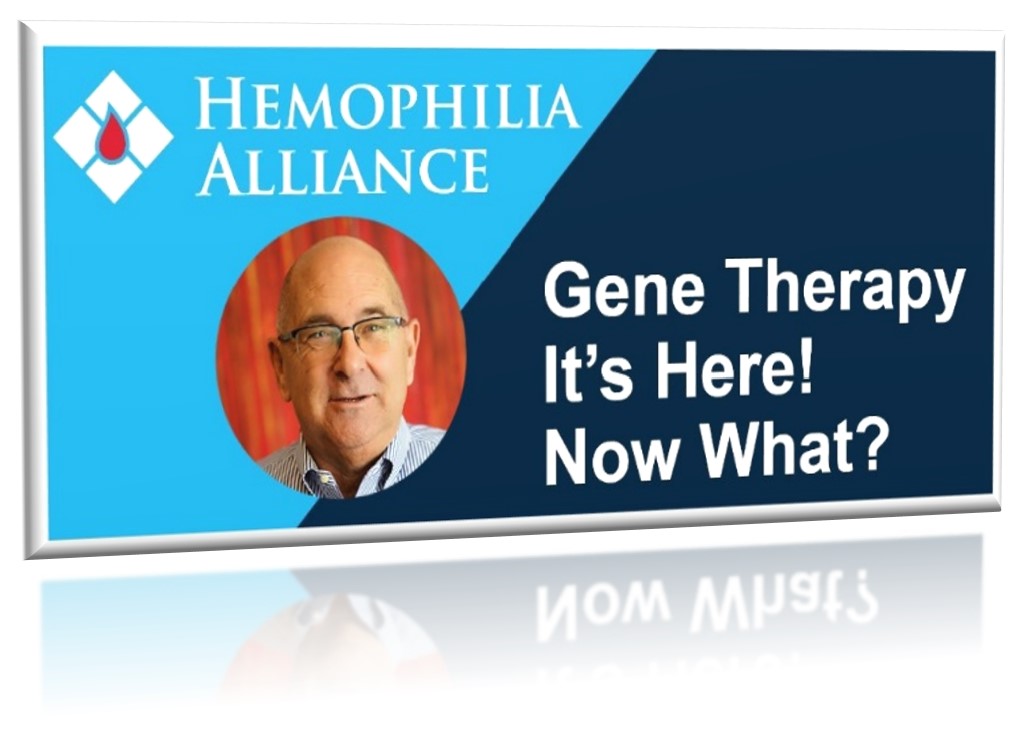 On July 13th, our President & CEO, Joe Pugliese led a webinar discussion on new Gene Therapy products that recently came to the market. We had a great turnout. Some of the highlights and objectives of the webinar were to review the Hub and Spoke model, review contract highlights, provide business comparisons between Gene Therapy Factor IX vs Factor VIII deficiency, and review purchasing through The Alliance Pharmacy.
On July 13th, our President & CEO, Joe Pugliese led a webinar discussion on new Gene Therapy products that recently came to the market. We had a great turnout. Some of the highlights and objectives of the webinar were to review the Hub and Spoke model, review contract highlights, provide business comparisons between Gene Therapy Factor IX vs Factor VIII deficiency, and review purchasing through The Alliance Pharmacy.
The webinar presentation and recording are now available on our website in the Document Portal section. You would need to login to access them.
- Alliance Member Needs Assessment
- Assistance in educating hospital leadership on the importance of HTC sustainability and growth — Do you want us to attend meetings? Is this marketing materials, reports, etc.?
- Administrator Meeting — FYI New Meeting this year November 2023
- Payer Negotiation Training — Breakout Sessions at future Meetings?
- Gene Therapy — Payer Services & General Discussions
by Marketing & Operations Team
In June we successfully conducted a Needs Assessment of our Members and were very appreciative of those who participated and provided valuable honest feedback. With 84 responses from 62 different HTCs, we had 50:50 representation from small HTCs and medium/large HTCs with most of the respondents in an administrative or program manager/director role.
By a significant margin, the top utilized and most useful services were Training/Education,340B Support, Payer Relations, Group Purchasing, and Legal and Compliance. In addition to finding ways to increase utilization of other services, we want to highlight that the Hemophilia Alliance is a Group Purchasing Organization to be utilized by all our members. Some of the lesser utilized services still add value but just appear to not be as applicable to all members and/or roles at HTCs. Services were also ranked by their ability to make HTCs successful, and we were super excited to see that many of the smaller HTCs gave a shout out to the Growth Initiative as a contributor to their success!
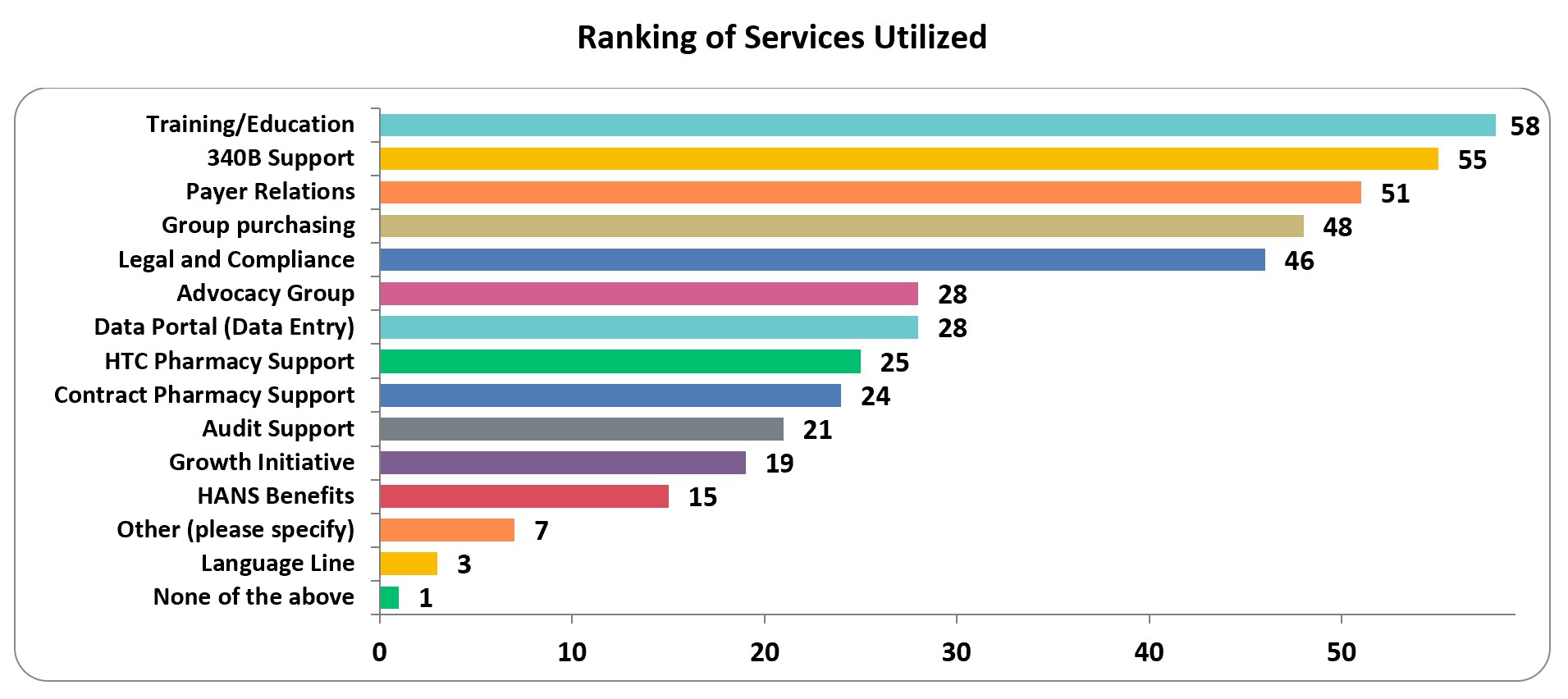
The Need Assessment highlighted that our small and independent centers have more specific needs for services and that expectations were not always met. BUT we received helpful suggestions that will help us support you!
These suggested service enhancements closely aligned with the top concerns from the HTCs, which predominately included 340B status, insurance issues/frequent changes, and staff turnover. These concerns are our concerns, and we will continue to review and analyze responses to come up with new and creative ways to meet our members’ needs.
Please don’t forget to register for the Fall Member Meeting and check out the NEW Physicians & Business Administrators Meeting. We encourage Business Administrators to bring a Physician from their HTC!
- Order Your Printed Product Guide NOW!
by Marketing & Operations Team
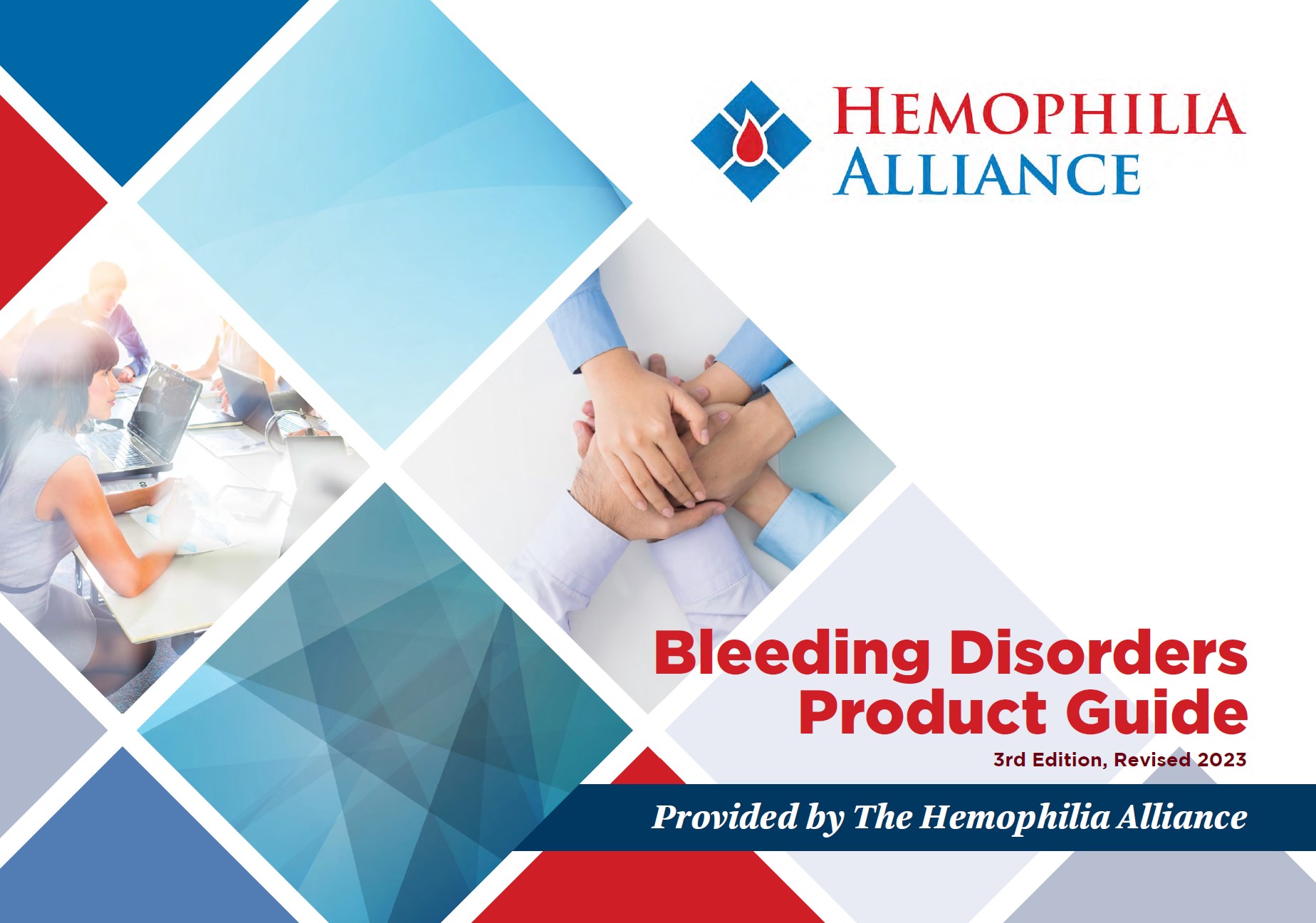 Have you already submitted your order for a printed copy of the newest edition of the Product Guide? If not, order it NOW!
Have you already submitted your order for a printed copy of the newest edition of the Product Guide? If not, order it NOW!
ORDER IT HERE!
- Hemophilia Alliance Welcomes Kollet Koulianos
- What the Data Shows on Copay Accumulator Adjustment Programs
by Jeff Blake, Senior Vice President Member & Community Relations
 Kollet Koulianos has joined the Hemophilia Alliance consulting team as of July 1, 2023. Kollet is an avid supporter of HTCs, the Hemophilia Alliance, Hemophilia Alliance Network Services (HANS) and she will help expand the number of payers (insurance brokers, insurers, stoploss carriers, self-insured employers, and employer coalitions) that we work with, which will help HTCs grow their pharmacy programs. She will add to our ability to offer payer solutions for our member HTCs at no cost to our members. In addition, she will help us fight Alternative Funding, Copay Accumulators/Maximizers, and other related healthcare policy issues.
Kollet Koulianos has joined the Hemophilia Alliance consulting team as of July 1, 2023. Kollet is an avid supporter of HTCs, the Hemophilia Alliance, Hemophilia Alliance Network Services (HANS) and she will help expand the number of payers (insurance brokers, insurers, stoploss carriers, self-insured employers, and employer coalitions) that we work with, which will help HTCs grow their pharmacy programs. She will add to our ability to offer payer solutions for our member HTCs at no cost to our members. In addition, she will help us fight Alternative Funding, Copay Accumulators/Maximizers, and other related healthcare policy issues.
Prior to starting her healthcare consulting firm, P3 Healthcare Benefit Consulting, Kollet was at the National Hemophilia Foundation for over 7 years and most recently was the Vice President Payer relations leading their Payer Relations Team developing and overseeing NHF’s healthcare payer education strategies, policies, and programs, including the Comprehensive Care Sustainability Collaborative (CCSC). Prior to joining NHF, Kollet was the Executive Director of Bleeding & Clotting Disorders Institute (BCDI) in Peoria, IL for almost 5 years.
The Alliance is excited to have Kollet engaged to work with us on the critical issues facing the United States Hemophilia Treatment Center Network (USHTCN). In addition, we will continue to work with NHF and Kollet on various collaborative projects. Please contact Jeff Blake at jeff@hemoalliance.org with any questions.
by Kollet Koulianos, MBA, Hemophilia Alliance Payer Consultant
By now, there is no doubt that our HTC’s are not only well versed on what Copay Accumulator Adjustment Programs (CAAP’s) are, but likely most, if not all, of you have had patients reach out seeking help, given the most recent data published by Avalere1 suggests that 83% of commercial enrollees are on a plan that has copay accumulator language. If you consider that the first CAAP was implemented by a self-funded employer in January of 2017, the uptake has been unprecedented.
From the beginning, we have expressed concern for the unintended consequences that could result for the approx. 55% of chronic disease patients on a high deductible health plan (HDHP)2 given that enrollees must satisfy his/her entire deductible before the plan contributes the first penny; and the fact that deductibles can be as high as $9,100 individual / $18,200 family in 2023. Manufacturers state that they offer patient copay assistance programs to commercially insured patients to reduce a patient’s out-of-pocket cost burden, because frankly they are untenable.
Research conducted by the National Pharmaceutical Council and Xcenda,3 found that increased patient cost-sharing was associated with worse medication adherence (84% of studies), persistence4 (79%) and discontinuation of medicine use (58%). In addition, six of nine (67%) studies found that increased cost-sharing was associated with decreased medication initiation.
The greater the magnitude of patient cost-sharing, the worse the adherence outcomes regardless of the condition, patient population, or type of cost-sharing. This evidence indicates that patients fail to start and continue needed medicines because of the cost burden.
Some evidence also suggests that higher patient cost-sharing for medications was associated with increased hospitalizations and decreased use of outpatient services. Four of six studies showed a significant increase in inpatient hospital utilization associated with higher cost-sharing.
As of today, 19 states (map below) have banned payer and pharmacy benefit manager (PBM) copay accumulator programs.5 These laws apply to state-regulated health plans, including the individual, fully insured large group, and small-group markets. It is possible additional states could join the growing number to pass accumulator laws as several states have yet to wrap up their 2023 legislative sessions.
A poster just presented at the end of June 2023 at the Academy Health ARM2023 conference, suggests that States that have banned the use of copay accumulators saw a decrease in patient out-of-pocket liability and an increase in treatment adherence and persistence.6 For those of you who may still be working to pass legislation in your state, these findings should be beneficial to share with your state legislators looking to reign in PBM games.
Current states with accumulator bans
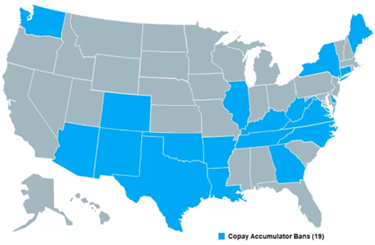
Because states do not have authority over ERISA plans, federal work is also being done in parallel to the state efforts. H.R. 830 The HELP Copays Act has been introduced by Representative Buddy Carter (R-GA) and currently has 61 bi-partisan cosponsors; and the Senate companion bill S.1375, led by Senator Roger Marshall, MD (R-KS) has also been introduced and currently has 13 bi-partisan co-sponsors.
This article focuses on copay accumulators, not copay maximizers. We will dive into copay maximizers in the coming months. Any questions can be directed to the payer team at the Hemophilia Alliance and for additional resources focused on both accumulators and maximizers visit www.allcopayscount.org
1 Copay Accumulator and Maximizers: Evolving Policy Landscape | Avalere Health
2 National Patient and Caregiver Survey lead by the National Hemophilia Foundation and included the Arthritis Foundation, Kidney Fund, MS Society, Cancer Support and the Aids Institute w results found here: COVID-19 Exacerbates Treatment Affordability Challenges & Health Inequities | National Hemophilia Foundation
3 High Patient Out-of-Pocket Costs Lead to Worse Medication Adherence Without Overall Health Care Savings | National Pharmaceutical Council (npcnow.org)
4 Persistence refers to the period of time from initiation of treatment to discontinuation, whereas adherence refers to the extent in which the patient acts in accordance to the prescribed interval and dosing regimin.
5 State Copay Accumulator Bans Will Affect 19% of US Commercial Lives | Avalere Health
6 Academy Health Poster Activity | John O’Brien LinkedIn
Washington, DC’s HOT July
by Artemis Policy Group, Hemophilia Alliance Advocacy Consultants
Congress has returned from its July 4th Recess with a full plate for the remainder of the month. In healthcare, bills on PBMs and pandemic-related issues seem to have the greatest chance of moving forward but the House and Senate Committees of jurisdiction are far apart on many policies. The future of 340B continues to play out mostly in press releases of new organizations forming, several related to a split among Community Health Centers. There is the potential for the introduction and movement of bills impacting 340B related to contract pharmacy and hospital reporting. Below is a recap of what we have seen in the last month.
ASAP 340B – As reported in our May and June newsletters, PhRMA and NACHC (the National Association of Community Health Centers) have formed a new organization, the Alliance to Save America’s 340B Program—ASAP 340B. The new group released a set of principles about how they intend to save the program, many of which could negatively impact HTCs (not allowing subgrantees to participate in 340B and limiting mail-order pharmacy and telehealth). The Alliance team have met with most of the manufacturers in our space to share these concerns. This has resulted in an FAQ on ASAP 340B’s website stating that the coalition has no intent on harming HTCs or their participation in 340B. The group plans to draft a bill incorporating the principals. We will share the details once this is made public.
ACH and 340C – In July of 2022 a group of Community Health Centers formed a new organization – Advocates for Community Health (ACH). According to its website, the organization is focused on innovative policy and advocacy initiatives and recently contact the Alliance about a proposal to create a new subset within the 340B program called 340C. ACH defines 340C as follows:
340C is completely voluntary – anyone who participates in 340B may choose to participate in 340C. The proposal maintains key provisions of the original 340B program, including the prime vendor, certification processes, and a prohibition on resale of drugs.
If entities opt to participate in 340C, they are subject to detailed accountability and transparency standards, including the following:
- Any funds generated shall be reinvested into program operations, patient care, and other community benefits, as determined by the covered entity leadership and governing board, to the populations served.
- Entities shall submit annual reports attesting to these requirements.
- Participants are subject to audits of records that establish their compliance.
In return for agreeing to these standards, entities will have access to:
- Reimbursement at wholesale acquisition cost (WAC) for all Medicaid drugs,
- Protection against discriminatory network and reimbursement actions by health insurers and PBMs, and
- Unlimited use of contract pharmacies as necessary.
340B Health – After years of not wanting to engage Congress in a legislative solution to the reporting and restraints that drug manufacturers have instituted related to contract pharmacy use in 340B, 340B Health is working on legislation with Representative Matsui on a bill to put contract pharmacy policy back to where it was before restrictions were first instituted by Eli Lilly in 2020. A draft of the bill is not available yet, but 340B Health is considering provisions to limit the ability of manufacturers to impose conditions on obtaining the 340B discount and create a separate civil monetary penalty for conditions that impede access to 340B, but do not directly result in an overcharge.
It is unclear if the bills being considered by these groups will move forward. If nothing else, it shows Congress the divisions among participants in the 340B program and the controversial nature of any attempts to make changes.
Senate RFI on 340B – A bipartisan group of Senators, including Senators Tammy Baldwin (D-WI), Shelley Moore Capito (R-WV), Ben Cardin (D-MD), Jerry Moran (R-Ks), Debbie Stabenow (D-MI), and John Thune (R-SD), issued a Request for Information(RFI) seeking ideas for how Congress can “further the original intent of the program, strengthening the program’s ability to support entities serving eligible patients.” More specifically, the RFI asks:
- What specific policies should be considered to ensure HRSA can oversee the 340B program with adequate resources? What policies should be considered to ensure HRSA has the appropriate authority to enforce the statutory requirements and regulations of the 340B program?
- What specific policies should be considered to establish consistency and certainty in contract pharmacy arrangements for covered entities?
- What specific policies should be considered to ensure that the benefits of the 340B program accrue to covered entities for the benefit of patients they serve, not other parties?
- What specific policies should be considered to ensure that accurate and appropriate claims information is available to ensure duplicate discounts do not occur?
- What specific policies should be considered to implement common sense, targeted program integrity measures that will improve the accountability of the 340B program and give health care stakeholders greater confidence in its oversight?
- What specific policies should be considered to ensure transparency to show how 340B health care providers’ savings are used to support services that benefit patients’ health?
Responses will not be made public and are due July 28. The Hemophilia Alliance is evaluating this opportunity and a potential response.
Lawsuits on Implementation of Medicare Drug Pricing Negotiation
by Elizabeth “Issie” Karan, Hemophilia Alliance Legal Counsel
In recent weeks, pharmaceutical manufacturers, including Merk, Bristol-Myers Squibb, and PhRMA, and the Chamber of Commerce have filed a slew of lawsuits challenging the Medicare Drug Price Negotiation Program authorized by the Inflation Reduction Act. Merck argued before the DC District Court that the law unfairly forces companies to participate in Medicare’s “price-setting,” and compared the program to “when a regime forces political prisoners to accept responsibility at show trials before they are shipped to the gulag.” Now the Chamber of Commerce has filed a motion for a preliminary injunction, requesting a halt to the agency’s drug price negotiation program while the group’s legal challenge proceeds.
Medicare price negotiations are set to take place over the course of 2023 and 2024, with the established prices not expected to go into effect until the start of 2026. However, these lawsuits could delay that timeline. Importantly for HTCs, Medicare Drug Pricing Negotiations only implicates Part D medications at first, which would not include treatments for bleeding and clotting disorders.
Team Alliance Contact Information
We work for you! Please don’t hesitate to contact any of us with any questions or concerns:
| Name | Phone | |
|---|---|---|
| Jeff Blake | jeff@hemoalliance.org | 317-657-5913 |
| Jennifer Borrillo, MSW, LCSW, MBA | borrillo@hemoalliance.org | 504-376-5282 |
| Jeff Amond | amond@hemoalliance.org | 608-206-3132 |
| Jennifer Anders | jennifer@hemoalliance.org | 954-218-8509 |
| Angela Blue, MBA | angela@hemoalliance.org | 651-308-3902 |
| Karen Bowe-Hause | karen@hemoalliance.org | 717-571-0266 |
| Zack Duffy | zack@hemoalliance.org | 503-804-2581 |
| Michael B. Glomb | MGlomb@ftlf.com | 202-466-8960 |
| Johanna Gray, MPA | jgray@artemispolicygroup.com | 703-304-8111 |
| Kiet Huynh | kiet@hemoalliance.org | 917-362-1382 |
| Elizabeth Karan | elizabeth@karanlegalgroup.com | 612-202-3240 |
| Kollet Koulianos, MBA | kollet@hemoalliance.org | 309-397-8431 |
| Roland P. Lamy, Jr. | roland@hemoalliance.org | 603-491-0853 |
| Dr. George L. Oestreich, Pharm.D., MPA | george@gloetal.com | 573-230-7075 |
| Theresa Parker | theresa@hemoalliance.org | 727-688-2568 |
| Mark Plencner | mark@hemoalliance.org | 701-318-2910 |
| Ellen Riker | eriker@artemispolicygroup.com | 202-257-6670 |
Comments are closed.